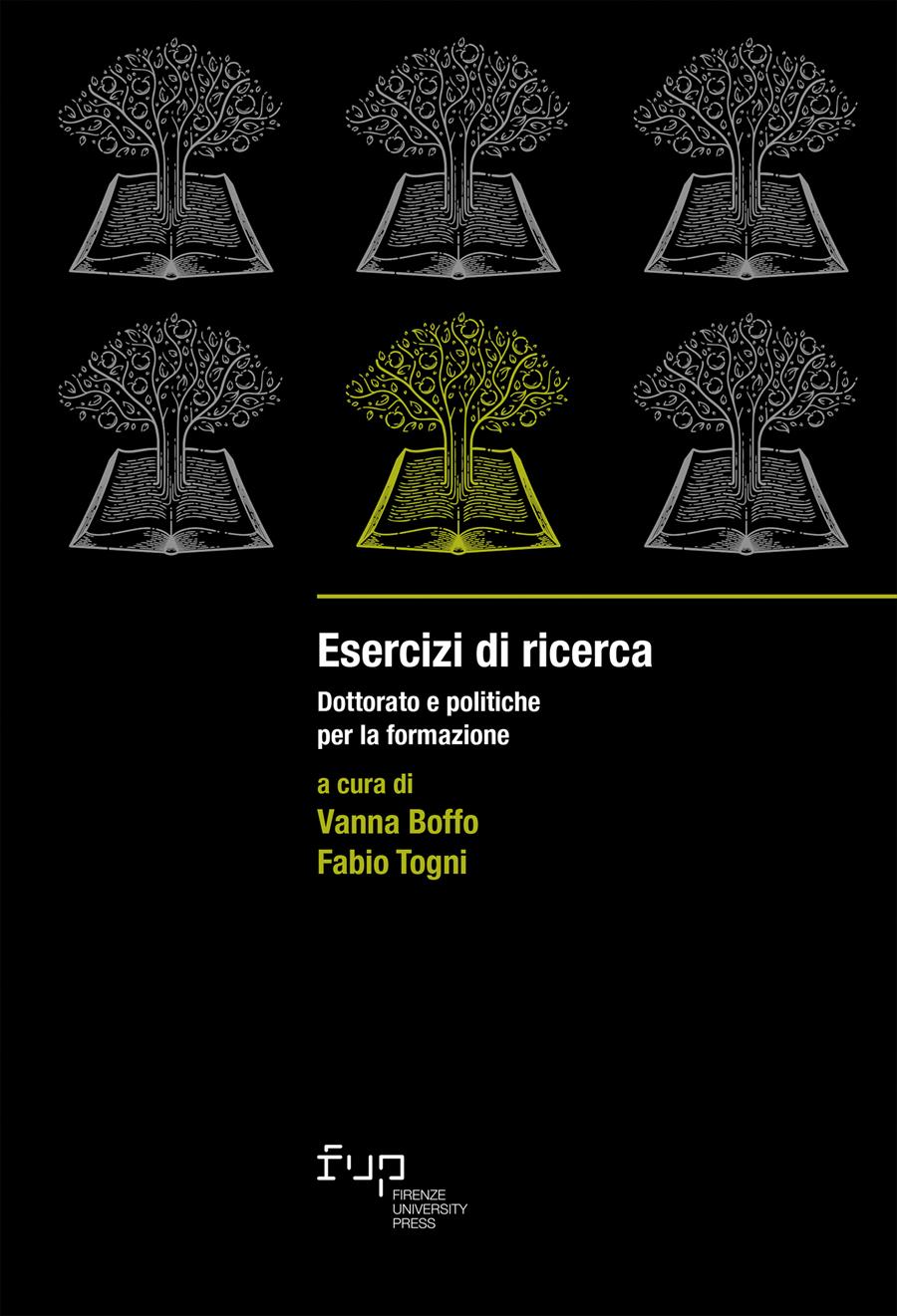- Esercizi di ricerca
- Edited by Vanna Boffo, Fabio Togni
Promuovere le competenze imprenditive degli studenti universitari: il caso dei Contamination Labs
- Letizia Gamberi
- © 2022 Author(s) |
- CC BY 4.0
- DOI: 10.36253/979-12-215-0081-3.17
The historical phase we are living, which is characterized by change management and the continuous redefinition of skills (Fiore et al. 2021), invites the university to question itself on the central role it plays for the formation of current and future. The work of the European Commission to address the improvement and adaptation of the skills of European citizens provides clear guidelines on which Higher Education is also called to commit. Among them, this paper focuses on the development of entrepreneurial skills, i.e. the ability to act on opportunities and ideas and to transform them into value for others. The Commission calls for the development of these competences at all levels of education, giving rise to entrepreneurial education training offers (Lackéus 2015). For this reason, and in order to respond to this need, since 2013 the Italian Ministry of University has established the Contamination Labs, places of contamination between students, teachers and local stakeholders aimed at developing interdisciplinary entrepreneurial education, which is also the subject of this research.
- Keywords:
- Contamination Lab,
- Entrepreneurship,
- Entrepreneurial Education,
- Higher Education,
University of Florence, Italy - ORCID: 0000-0002-4134-7671
- Bacigalupo, Margherita, Kampylis Panagiotis, Punie Yves, and Godelieve Van den Brande. 2016. EntreComp: The Entrepreneurship Competence Framework. Luxembourg: Publication Office of the European Union.
- Bacigalupo, Margherita, Weikert García Lilian, Mansoori Yashar, and William O’Keeffe. 2020. EntreComp Playbook: Entrepreneurial Learning Beyond the Classroom. Luxembourg: Publications Office of the European Union.
- Corbin, Juliet M., and Anselm Strauss. 1990. “Grounded Theory Research: Procedures, Canons, and Evaluative Criteria.” Qualitative Sociology 13 (1): 3-21.
- Fiore, Eleonora, Remondino Chiara L., e Giuliano Sansone. 2021. Design e sostenibilità per la formazione imprenditoriale: l’esperienza del Contamination Lab Torino. Milano: Egea.
- Glaser, Barney, and Anselm Strauss. 2006. The Discovery of Grounded Theory: Strategy for Qualitative Research. New Brunswick-London: Aldine Transaction.
- Hägg, Gustav, and Jonas Gabrielsson. 2019. “A Systematic Literature Review of the Evolution of Pedagogy in Entrepreneurial Education Research.” International Journal of Entrepreneurial Behavior & Research 26 (5): 829-61.
- Komarkova, Ivana, Gagliardi Dimitri, Conrads Johannes, and Antonio Collado. 2015. Entrepreneurship Competence: An Overview of Existing Concepts, Policies and Initiatives. Final Report, edited by Margherita Bacigalupo, Panagiotis Kampylis, and Yves Punie. Luxembourg: Publication Office of the European Union.
- Lackéus, Martin. 2015. Entrepreneurship in Education: What, Why, When, How. Paris: OECD.
- Lackéus, Martin, Lundqvist Mats, Williams Middleton Karen, and Johan Inden. 2020. The Entrepreneurial Employee in the Public and Private sector: What, Why, How, edited by Margherita Bacigalupo. Luxembourg: Publication Office of the European Union.
- McCallum, Elin, Weicht Rebecca, McMullan Lisa, and Alison Price. 2018. EntreComp into Action: Get Inspired, Make it Happen. A User Guide to the European Entrepreneurship Competence Framework, edited by Margherita Bacigalupo, and William O’Keeffe. Luxembourg: Publication Office of the European Union.
- MIUR 2016. Contamination Lab. Linee Guida 2016. <http://attiministeriali.miur.it/media/298194/all.1_clab-lineeguida.pdf> (2022-12-15).
- Moberg, Kåre, Stenberg E., and Lene Vestergaard. 2014. Impact of Entrepreneurship Education in Denmark – 2012. Odense: The Danish Foundation for Entrepreneurship – Young Enterprise.
- Morselli, Daniele. 2016. “La pedagogia dell’imprenditività nell’educazione secondaria.” Formazione & Insegnamento 14 (2): 173-85.
- Nussbaum, Martha C. 2011. Non per profitto: perché le democrazie hanno bisogno della cultura umanistica. Bologna: il Mulino.
- Piazza, Roberta. 2015. “Educazione all’imprenditorialità, orientamento all’iniziativa. Entrepreneurship Education, Initiative Guidance.” Pedagogia oggi 1: 72-90.
- QAA Quality Assurance Agency for Higher Education. 2014. Creating Entrepreneurial Campuses. <https://www.qaa.ac.uk/docs/qaas/enhancement-and-development/creating-entrepreneurial-campuses.pdf?sfvrsn=e613f581_6> (2022-12-15).
- Sarasvathy, Saras D., and Sankaran Venkataraman. 2011. “Entrepreneurship as Method: Open Questions for an Entrepreneurial Future.” Entrepreneurship Theory and Practice 35 (1): 113-35.
- Secundo, Giustina, Mele Gioconda, Sansone Giuliano, and Emilio Paolucci. 2020. “Entrepreneurship Education Centres in Universities: Evidence and Insights from Italian ‘Contamination Lab’ Cases.” International Journal of Entrepreneurial Behavior & Research 26 (6): 1311-33.
- Tarozzi, Massimiliano. 2008. Che cos’è la Grounded Theory. Roma: Carocci editore.
- Teddlie, Charles, and Abbas Tashakkori. 2009. Foundations of Mixed Methods Research: Integrating Quantitative and Qualitative Approaches in the Social and Behavioral Sciences. Thousand Oaks: Sage.
- Trinchero, Roberto, e Daniela Robasto. 2019. I mixed methods nella ricerca educativa. Milano: Mondadori Education.
Chapter Information
Chapter Title
Promuovere le competenze imprenditive degli studenti universitari: il caso dei Contamination Labs
Authors
Letizia Gamberi
Language
Italian
DOI
10.36253/979-12-215-0081-3.17
Peer Reviewed
Publication Year
2022
Copyright Information
© 2022 Author(s)
Content License
Metadata License
Bibliographic Information
Book Title
Esercizi di ricerca
Book Subtitle
Dottorato e politiche per la formazione
Editors
Vanna Boffo, Fabio Togni
Peer Reviewed
Number of Pages
278
Publication Year
2022
Copyright Information
© 2022 Author(s)
Content License
Metadata License
Publisher Name
Firenze University Press
DOI
10.36253/979-12-215-0081-3
ISBN Print
979-12-215-0094-3
eISBN (pdf)
979-12-215-0081-3
eISBN (xml)
979-12-215-0082-0
Series Title
Studies on Adult Learning and Education
Series ISSN
2704-596X
Series E-ISSN
2704-5781
